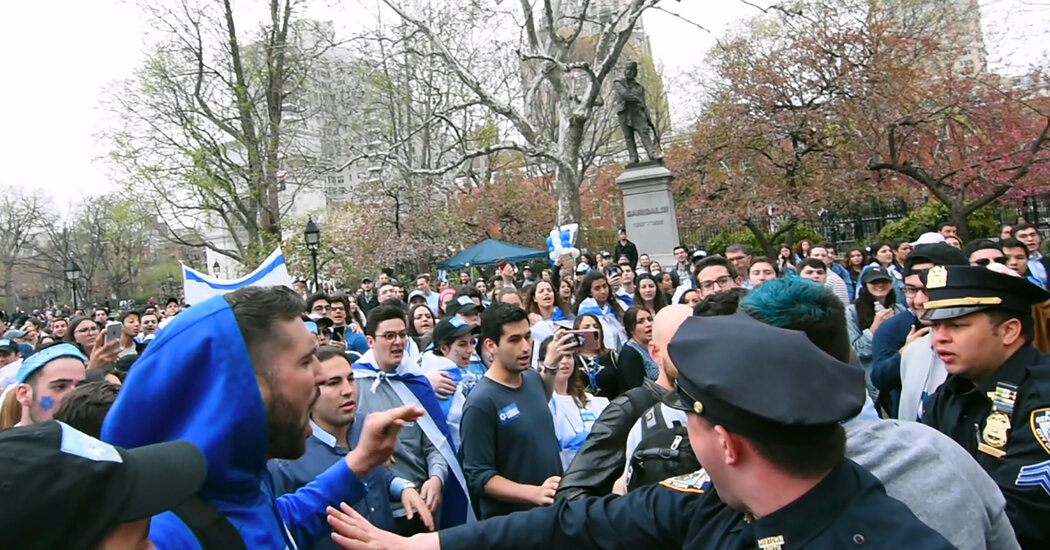After returning to her home in New Jersey, she enrolled in self-defense classes and bought a security car Taser.
In September, New York University Settlement Ms. Cojab’s complaint to the Office of Civil Rights, outlining the steps needed to address anti-Semitism on campus, as specified in the President’s Executive Order. However, the school has not waived any violations, nor has the Executive Order section cited examples of anti-Israel rhetoric as anti-Semitic.
Meanwhile, conflicts continue, with or without students on campus. Universities are left to falter in the middle to balance the irreconcilable imperatives.
Columbia University President Lee Bollinger reiterated the school’s commitment to freedom of expression, but pledged to ignore the students’ recall referendum. New York University President Andrew D. Hamilton, expressed his “consternation” for enlarging his offer to cancel the webinar with Mrs. Khaled, but also criticized the professors who sponsored it.
For now, though, the virtual campus makes it easy not to listen to each other, and to reject the “normalization” of an opposing viewpoint. Instead, both sides delve into their own moral narratives, Kenneth S. Stern, director Center for the Study of Hate at Bard College In Annandale-on-Hudson, New York, The Man Who Wrote A working definition of anti-Semitism It is invoked in Mr. Trump’s Executive Order. Mr Stern said the definition was intentional Collect data, not organize campus debate.
“The truth is that both arguments are true, and to understand the issue, you must not choose one side and fight against the other, you have to say that both peoples have demands from the indigenous population, and one can raise the issue from the visible Jewish side, of course we have always been there, and the Palestinians can say “We have been here for a long time and we are indigenous.” Both are true.
He said history is “messy,” with “justice on both sides, and injustice on both sides.”
Even without distance learning, students have little incentive to see the other point of view and strong support to strengthen their point of view.
Mildly, Mr. Stern said, “This makes the talks very difficult.”

“Guru professionista del caffè. Giocatore tipico. Difensore degli alcolici. Fanatico del bacon. Organizzatore.”







